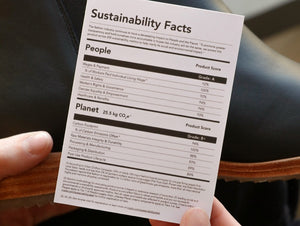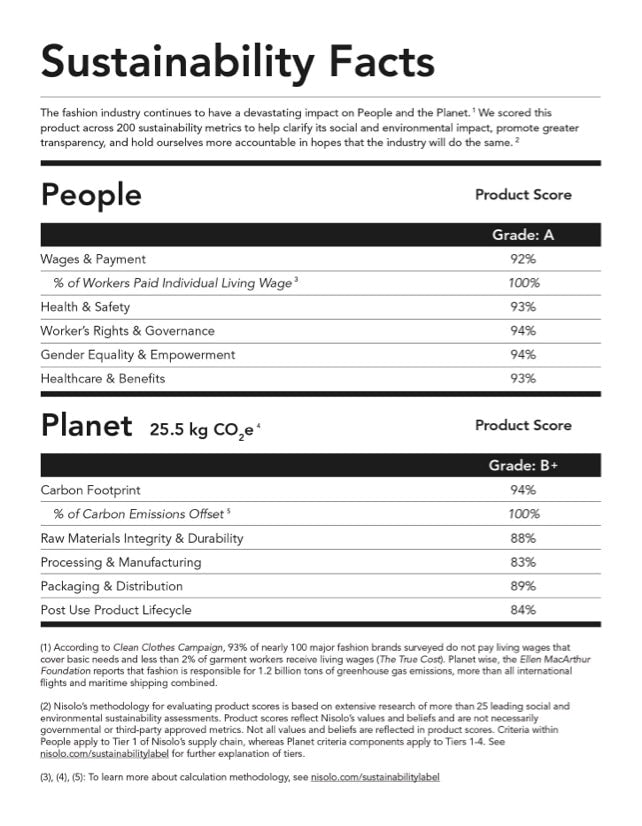We are committed to protecting the human and labor rights of our direct and indirect employees in the US. We use MIT’s Living Wage Calculator to monitor and establish our direct and indirect employees’ wages. 100% of our retail store and distribution workers receive an individual living wage for Davidson County, Tennessee. We increased our wages on three separate occasions to ensure that our lowest wage exceeds the living wage. In 2020, we raised our lowest wage from $12 an hour to $12.40 an hour to meet the living wage. In 2021, when the living wage increased to $14.84 an hour, we increased our lowest wage from $12.40 an hour to $15 an hour. In 2022, we raised our lowest wage from $15 an hour to $17.68 an hour when the living wage increased to that rate. In addition to paying living wages, we provide professional development and career advancement opportunities to our team members through investing in job training and 1on1 coaching with professional business coaches. By ensuring living wages and investing in these forms of professional development, we are doing our best to set up our team members for long term success. 100% of our models, photographers, and photo assistants receive a living wage for Davidson County, Tennessee. Our lowest hourly wage for non-professional models (who are generally friends and who are paid less than our professional models) is $18.75 an hour + a free product of choice. Our lowest hourly wage for photographers is $100 an hour; Our lowest hourly wage for photo assistants is $39 an hour; and the lowest hourly wage at FedEx, our 3PL partner, is $17 an hour.
We believe we have an opportunity to contribute toward progress within racial justice by pursuing antiracism as an organization. Historically, this is something we have done a very poor job of, and we still have a long way to go. Tactically, one of the most powerful tools of antiracism is education and learning. We are thoughtful and intentional in our personal pursuit of antiracism. We are open in sharing our journeys in an appropriate way, reflecting and learning individually and as a team as we move toward greater awareness of biases and work to break down barriers. We have developed and are in the process of executing a robust set of internal systems and processes that empower antiracist initiatives throughout the organization. Some of our objectives include these commitments: We seek to hire and be a diverse community of employees, with Black representation throughout the organization. We recognize that a pool of uniquely qualified candidates may not meet the criteria usually sought out in traditional job descriptions, and in addition to revising our recruiting approach on all fronts, we’ve formed partnerships with HBCUs and local community leaders in Nashville to create opportunities for historically marginalized communities. We seek to identify, connect with, uplift, and promote Black owned businesses who offer excellent products and services that our core customer base will love. We seek to strengthen our demonstration of a racially diverse community from a content perspective to our customers. We seek to strengthen relationships with the Black community in which we operate, both in Nashville and North Nashville, specifically, and aim to be actively involved in generating positive change and greater justice for Black people in Nashville.
Our plan is largely focused on enhancing our recruitment efforts and working environment to enable a more racially diverse organization, but we have a long way to go when it comes to company demographics and race. Currently, no one on our executive team is African American (TN: 17%). At the moment, all are white (TN: 78%), and we are actively recruiting African American executives for leadership positions. 29% of our executive team is male; 71% is female (TN: 49% male; 51% female). We recognize the need to enhance representation within and throughout the organization at large.
Regarding benefits, Nisolo currently covers 60% of a full time employee's monthly cost of healthcare for those who choose to enroll in the Company’s plan, or around $150 per month for those who elect to maintain their own plan. Additionally, Nisolo contributes to an employee-owned HSA account each month in the form of $250 annually, or $20.83 / month. This account can be used to contribute towards medical expenses and annual deductibles. If employees separate from Nisolo, this money in the HSA goes with you. Nisolo regularly has team outings, offsites, and happy hours, etc. and is a small and flexible team that is open to varying work schedules where possible and embraces standard time off norms. Each year, full time staff members are allotted $500 retail value of free Nisolo product. Beyond this amount, staff can buy Nisolo products at a 50% discount for as much product as they would like to purchase for personal use. One person can be designated (typically a partner or family member) who can also receive 50% off Nisolo products for their personal use. Additionally, Nisolo partners with several like-minded brands, which offer deep discounts for Nisolo employees.
We know we have a long way to go on several fronts as we scale. Today, we remain an under-resourced, small company that is not yet profitable. However, we envision turning our headquarters into a ‘best place to work’ atmosphere in all, holistic aspects of the concept, ranging from Diversity, Equity, & Inclusion to compensation to company culture to benefits, etc., and we are striving to make significant progress each year in this pursuit along our path to scale.





























